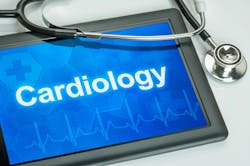The American College of Cardiology (ACC) has developed a registry that offers data-driven insights on cardiac procedures performed in the ambulatory surgery setting.
Ambulatory surgery centers (ASCs) are healthcare facilities that provide same-day surgical care, including diagnostic and preventive procedures, outside a hospital setting for planned procedures on low-risk, stable patients.
The number of cardiac procedures being performed in ambulatory surgery centers has grown significantly in the last decade, leading ACC’s National Cardiovascular Data Registry (NCDR) to create the CV ASC Registry Suite to fit into the established workflow and allow these facilities to measure and compare their patient care and outcomes to similar procedures performed in the hospital outpatient setting.
Recent shifts in third-party payer reimbursement, led by the Centers for Medicare and Medicaid, have resulted in continued trends of minimally invasive cardiac procedures on stable patients increasingly being performed outside of a hospital setting. Select procedures performed outside the hospital setting—such as diagnostic cardiac catheterization, non-acute percutaneous coronary interventions and defibrillator and pacemaker implantations—closely intersect with existing data collection occurring in NCDR's CathPCI Registry and EP Device Implant Registry. As clinical data continues to become available on the safety of minimally invasive cardiac procedures in settings other than hospitals, the volume of procedures performed in ASCs will likely grow.
“This registry suite is meeting an unmet need. Ambulatory surgery centers want and need to be able to track their quality to ensure they are choosing the right setting for their patients,” said Jeptha Curtis, M.D., interventional cardiologist and NCDR chief science advisor, in a statement. “ASCs exist in a rapidly evolving space that are governed by state laws and complex regulations. NCDR has the experience and data needed to allow ASCs to benchmark their performance against similar facilities, including hospitals performing these procedures on an outpatient basis, and use that information to optimize care delivery and patient outcomes.”
Participants in the registry will have access to any resource available to NCDR registry participants, including benchmark data from the NCDR CathPCI Registry and NCDR EP Device Implant Registry for elective patients, in addition to benchmarks and comparisons, including procedures data, hospitalization rates, emergent transfer rates, medications, efficiency rates, adverse events and bleeding events performed only in ASCs.
“NCDR’s focus has always been to support physicians and clinical care teams in providing high-quality care and improved outcomes for cardiovascular patients, and so is uniquely suited to create a registry that is sustainable and tailored to the needs of ambulatory surgery centers and health care stakeholders,” said Lara Slattery, M.H.S., M..LS., ACC Division vice president for clinical registries and accreditation, in a statement. “The cardiac ASC space is relatively new and expected to grow rapidly in the next five years. By introducing this registry suite and providing unique analytic insights to facilities that might not otherwise have access to this kind of detailed information about themselves and similar facilities, NCDR is leading the way on informing and ensuring that quality and outcomes continue to be central to patient care in a shifting health care landscape driven by cost considerations and patient preferences in delivering high-value care.”


